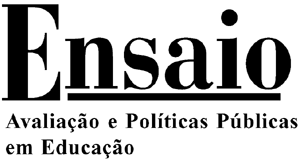This article deals with the proposal for social inclusion of children and teenagers, having education as the main changing agent, aiming to give them a desirable level of human development. In order to understand the current situation, we present an abbreviated analysis of the legislation related to Brazilian children and teenagers, as well as indicators of health and education, based on data from the Ministry of Health, Education, PNAD, IBGE, and the reality of the relationship education and work. We propose the creation of Poles, focusing mostly schools, health posts and social assistance posts already existent, that should be defined in a democratic socio-political process, involving Government and Society. The protagonists of the actions should be professionals of well-known competence to develop the proposal, including the functions of monitoring, following-up and evaluating needed for the best efficiency and effectiveness of their actions and to whom physical and financial working conditions, compatible with their functions, should be granted as well as the possibility of professional promotion.
Education and social inclusion; Education and federal laws; Education and health; work and basic education; Pole schools







